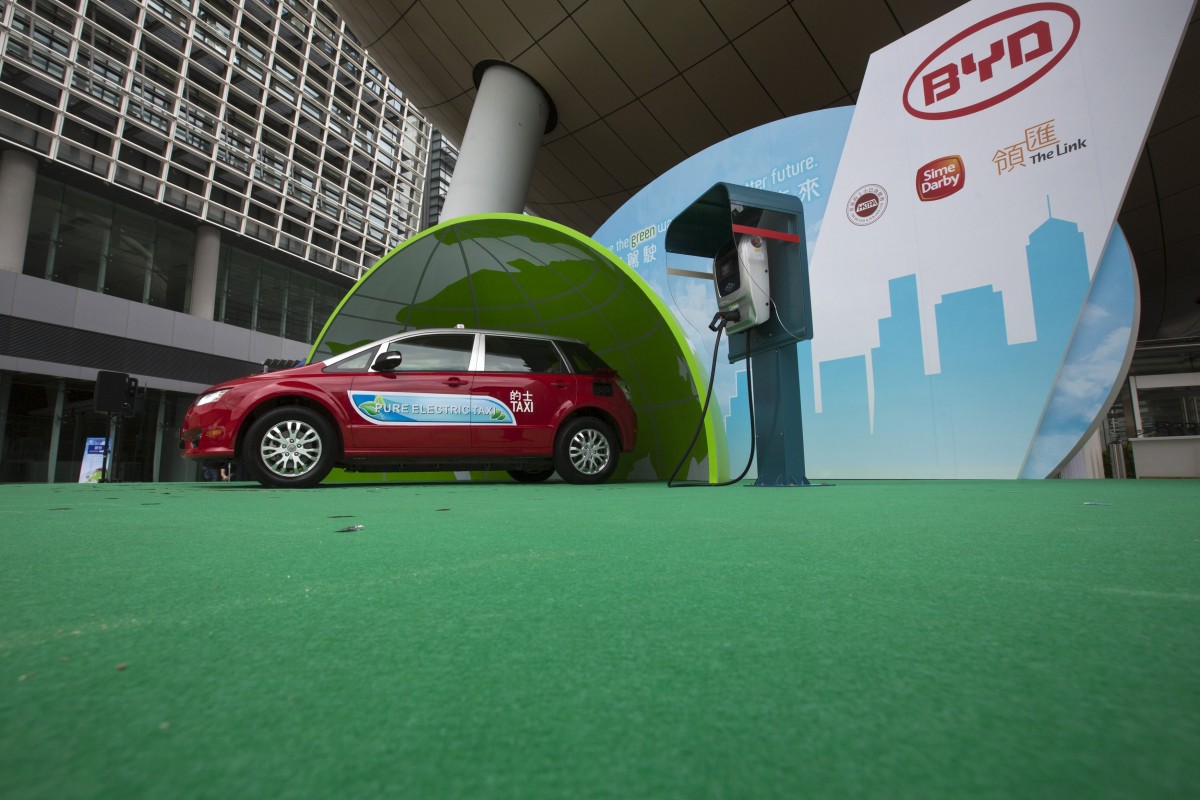
The Pilot Green Transport Fund may have been an eco-friendly idea, but electric vehicles may be ‘unsuitable for Hong Kong’
 Electric taxis need around four hours to be fully charged up.
Electric taxis need around four hours to be fully charged up. Hong Kong’s two-year trial run of electric taxis has backfired as its long charging time was viewed as unsuitable to operate the cabs round the clock.
The Environment Bureau reached the conclusion as it examined the results of 40 trials of electric vehicles funded by the government’s Pilot Green Transport Fund.
The government set up the HK$300 million fund in 2011 aiming to encourage greener energy use for commercial vehicles. At the end of March, the fund had approved 94 trials of electric vehicles with about HK$86 million in subsidies.
However, the trial run of three electric taxis was halted as the three trial operators have switched to register the vehicles as private cars, according to a government paper submitted to the Legislative Council’s environmental affairs panel.
“High production cost, limited service life, long charging time and low energy density of e-vehicle batteries are the key constraints for electric vehicles to take up commercial transportation duties,” the bureau said.
“A taxi under normal operation cannot spare about four hours a day for charging,” it added, pointing out that electric light buses and coaches also experienced similar problems.
Clean Air Network Campaign officer Winnie Tse Wing-lam told Young Post that the government was not determined enough to promote and operate electric vehicles and should provide more funds for scientific research and development.
“There are many benefits of electric vehicles, such as reducing carbon dioxide emissions and other environmental impacts. We recommend that the fund should be mainly used for scientific research to develop electric taxis and filling stations that are more environmentally suitable for the city,” says Tse.